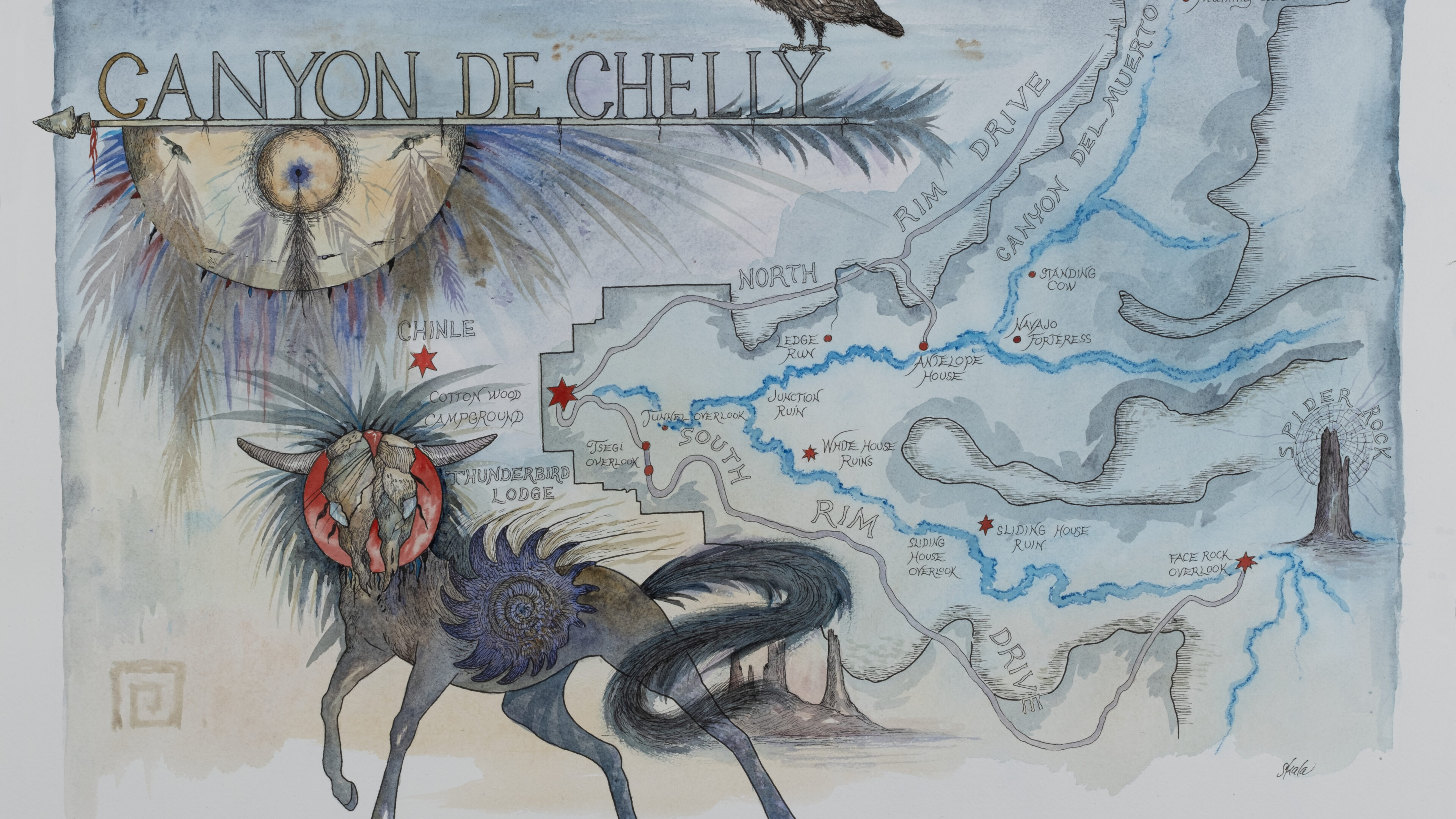Martina Skala was born and grew up in Prague’s Lesser Town, attended the Václav Hollar Secondary School of Art, studied history at Charles University and scenography at DAMU, and worked as a costume designer for the Divadlo Rubín theatre. In the 1980s, she left for France, where she worked for film in the field of decoration, collaborating with Pierre Guffroy and contributing to the films of Miloš Forman, Roman Polanski, and Henri Verneuil. In the late 1990s, she and her husband settled in California, where she began to write books and create illustrations and works of art. She has regularly returned to the Czech Republic since 1991 and maintains ties with her “starting point” in the Lesser Town. She nevertheless says of herself that she feels most at home on horseback.
In her series of children’s books Strado & Varius, Skala revisits Europe, using subtle humour and a mixture of text and images in the tale of violinist Varius and the violin Strada to explore the subject of music. In the books, her protagonists visit various European cities, where they encounter important figures from the world of music. The two friends meet in the first book, Strado & Varius (2002), which is set in Paris. The second in the series, Strado & Varius in Mozart’s Footsteps (2003) explores Wolfgang Amadeus Mozart’s time in Prague; Strado & Varius Visit Johann Sebastian Bach’s School (2004) relates to the International Bach Competition in Leipzig; and the last in the series, Strado & Varius in Venice with Vivaldi (2005), is dedicated to Antonio Vivaldi and Venice. The books have been published in seven languages and have won numerous awards, including Magnesia Litera (2003), the Suk Prize (2003) and third place in the Czech Republic’s Most Beautiful Book of the Year competition (2003). At the international book fair in Frankfurt, her illustrations were included in the exhibition The Best Books in Children’s Literature in the World. Her next book, Kuma the Bear (2009), and two subsequent comic books for children titled My Name Is Čičák (2019) and The Crazy Chicken’s Journey towards Happiness (2020) are about journeys, travelling and the mixing of cultures. Skala comes up with her stories and illustrations at the same time. She has also illustrated numerous books by other authors.
In her most recent book, This Is My Land, Dinétah (2022), she shifts her attention from the world of children’s imagination to the imaginary world of grown-ups. The book describes her adventures travelling to the Navajo Nation on the border between Arizona and Utah. Thanks to her ability to compete with the local Navajo in wild and free horseback riding, she gained their trust and was admitted to the world of America’s original inhabitants and their culture. But the clash with modern civilization raised questions regarding her own identity as well. The culture of the Navajo provided Skala with inspiration for her painting, which forms a visual accompaniment to her written story. This part of her work, with themes relating to Native American myths and legends, is represented at the exhibition by prints of her oil paintings and imaginary maps. Martina Skala’s art for children and adults reflects her VOYAGE, on which she repeatedly encounters questions of identity in a diverse world. She looks for contexts and finds connections.


